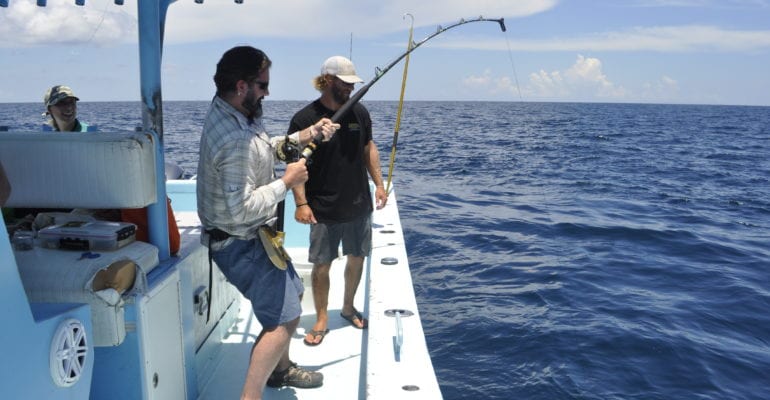NOAA Fisheries announces a final rule that will establish Vessel Monitoring System (VMS) reporting requirements for Charter and Headboat Vessels with Gulf reef fish and Gulf coastal migratory pelagic federal permits.
Regulations will be effective December 13, 2021.
What This Means:
- The vessel owners or operators must install NOAA Fisheries approved hardware and software with global position system capabilities that, at a minimum, archives vessel position data during a trip and transmits those data to NOAA Fisheries.
- The location positioning portion of the hardware must be installed by a certified installer, permanently affixed to the vessel and turned on at all times, unless a power-down exemption is granted.
- The owner or operator of a vessel with a Gulf for-hire federal Charter/Headboat permit must comply with these reporting requirements no matter where the vessel is fishing.
- A list of approved VMS units can be found here: https://www.fisheries.noaa.gov/southeast/rules-and-regulations/approved-vessel-monitoring-system-vms-units-reporting-southeast-hire-integrated.
FORMAL FEDERAL REGISTER NAME/NUMBER: 86 FR 51014, published September 14, 2021.
This bulletin serves as a Small Entity Compliance Guide, complying with section 212 of the Small Business Regulatory Enforcement Fairness Act of 1996.
Where can I find more information on the rule?
- Contact NOAA Fisheries, Southeast Regional Office
- By Mail:
Rich Malinowski
NOAA Fisheries, Southeast Regional Office
Sustainable Fisheries Division
263 13th Avenue South
St. Petersburg, Florida 33701-5505
- By FAX: (727) 824-5308
- By Phone: (727) 824-5305
- Framework Amendment may be found online at the NOAA Fisheries Southeast Regional Office Web site.
Frequently Asked Questions
What are the new requirements?
- Vessel operators will be required to have an approved VMS that includes a GPS device affixed to the vessel that, at a minimum, archives vessel position data for submission to NOAA Fisheries.
- The location positioning portion of the hardware must be installed by a certified installer, permanently affixed to the vessel and turned on at all times, unless a power-down exemption is granted.
- The owner or operator of a vessel with a Gulf for-hire federal permit must comply with these reporting requirements no matter where the vessel is fishing.
- The effective date for the VMS requirement was originally delayed in the July 21, 2020, final rule when the trip declaration and logbook requirements were published (85 FR 44005).
How did this rule come about?
- The requirement being implemented by NOAA Fisheries is the result of an amendment that was developed by the Gulf of Mexico Fishery Management Council (Gulf Council).
- The Gulf Council, which includes for-hire industry participants, chose a vessel position device to help validate effort (fishing trips) and aid in enforcement of reporting requirements.
- The vessel position system is an additional mechanism requested by the Gulf Council that verifies vessel activity without a report having to be completed by the vessel operators.
Why are the new requirements necessary?
- The ability for NOAA Fisheries to know when a federally permitted for-hire vessel leaves the dock and takes a trip is needed for managers to estimate the total number of for-hire trips and subsequently compare those numbers to the number of trip declarations and logbooks reported.
- Trip Declaration and VMS devices are expected to provide better data on fishing effort (number of trips) and allow for better enforcement of fishing regulations.
- The trip-level reporting could help improve stock assessments by providing a more accurate record of for-hire vessel landings and locations.
Where can I find more information about this electronic reporting program, its requirements and the amendment that established the program?
- More information on the for-hire reporting program can be found at: https://www.fisheries.noaa.gov/southeast/recreational-fishing-data/southeast-hire-integrated-electronic-reporting-program.
- The For-Hire Electronic Reporting Amendment is available on line at the NOAA Fisheries Southeast Regional Office Web site or the Gulf of Mexico Fishery Management Council Web site.
- Any questions regarding reporting requirements should be directed to the Southeast Regional Office, Saint Petersburg, Florida @ 727-824-5305.




